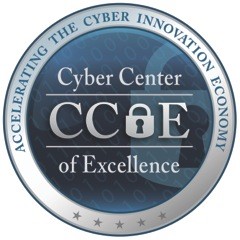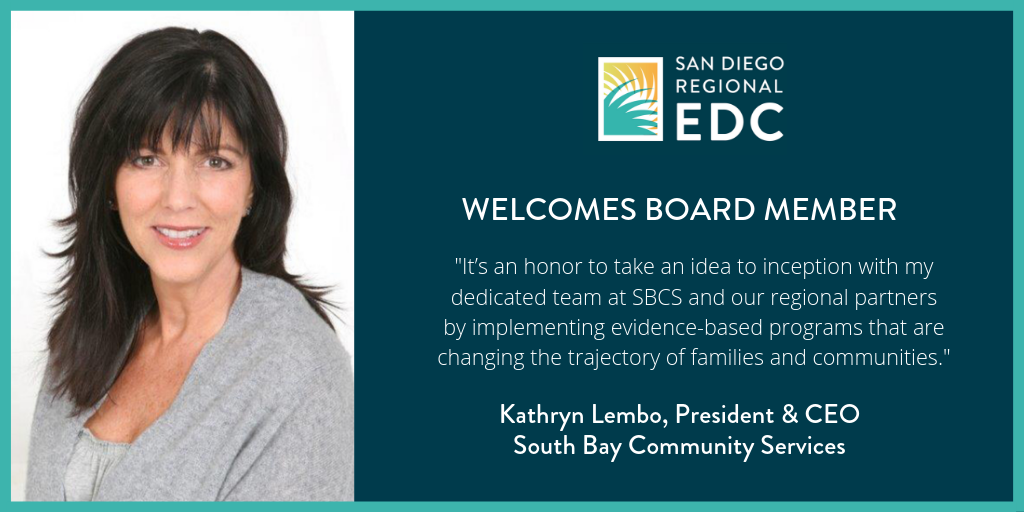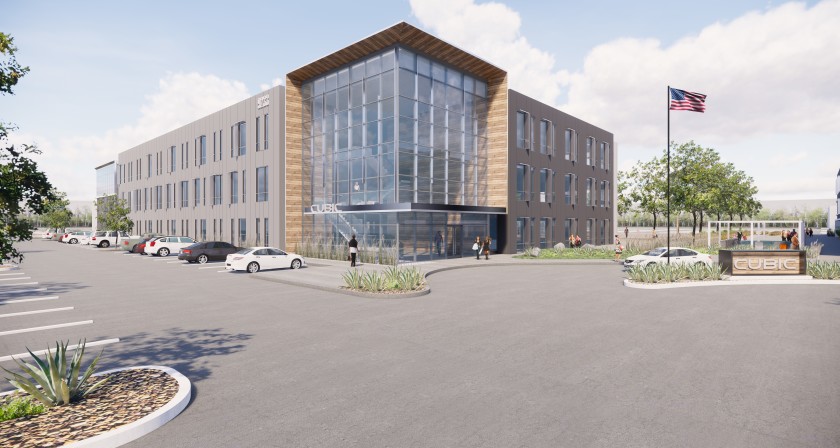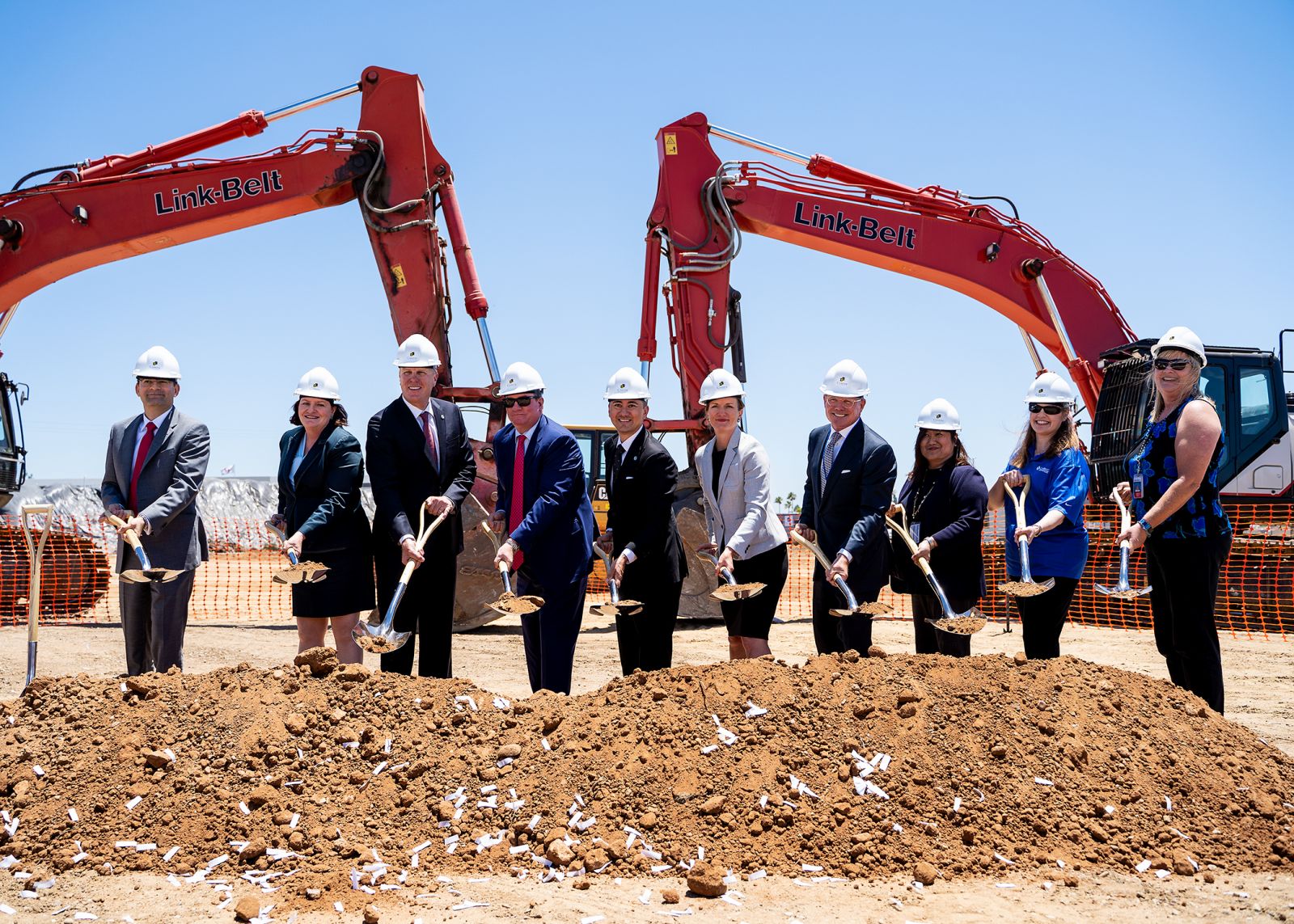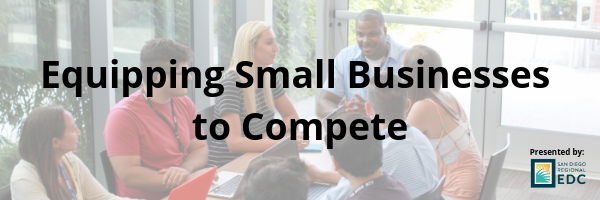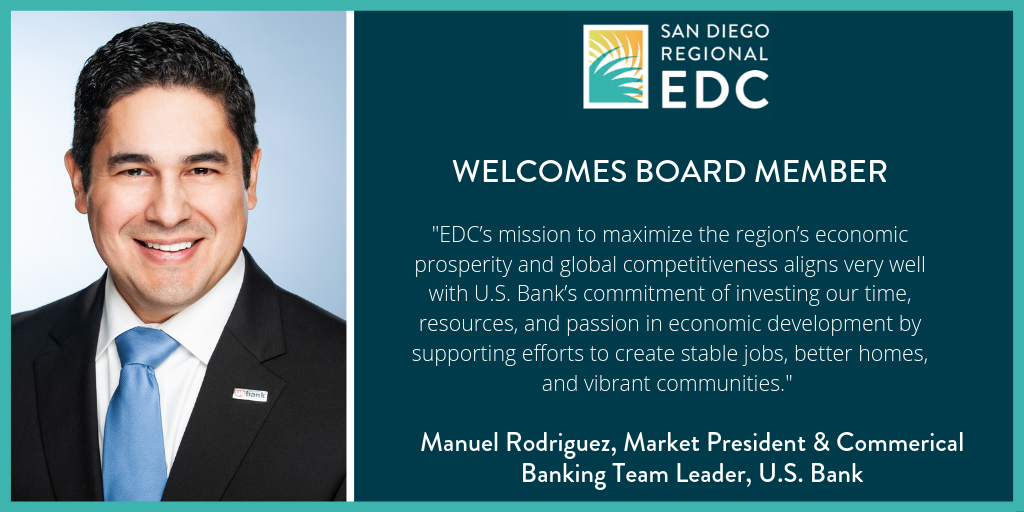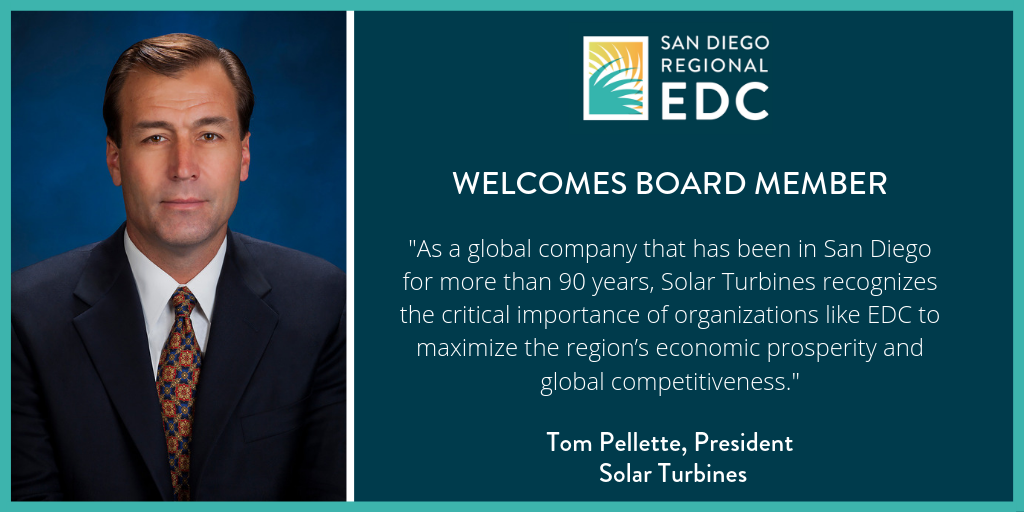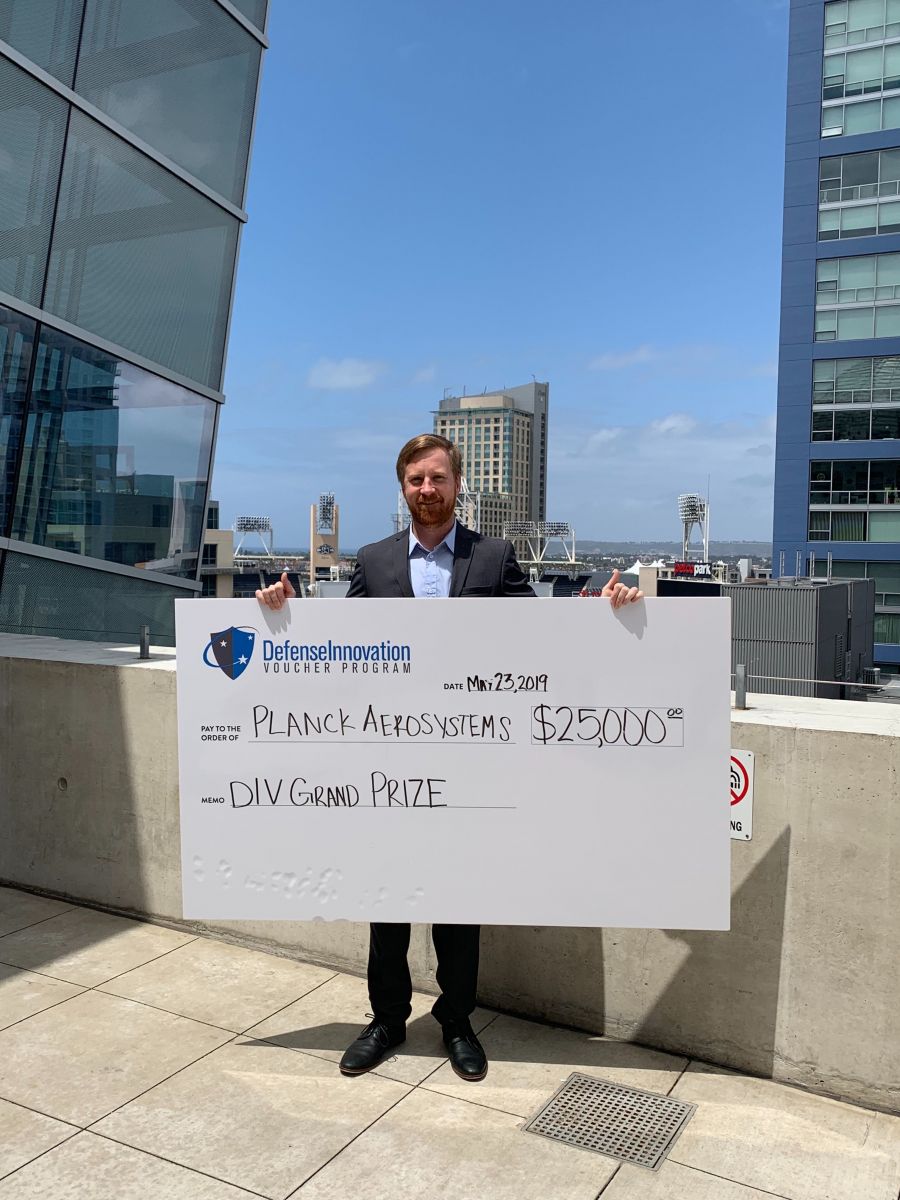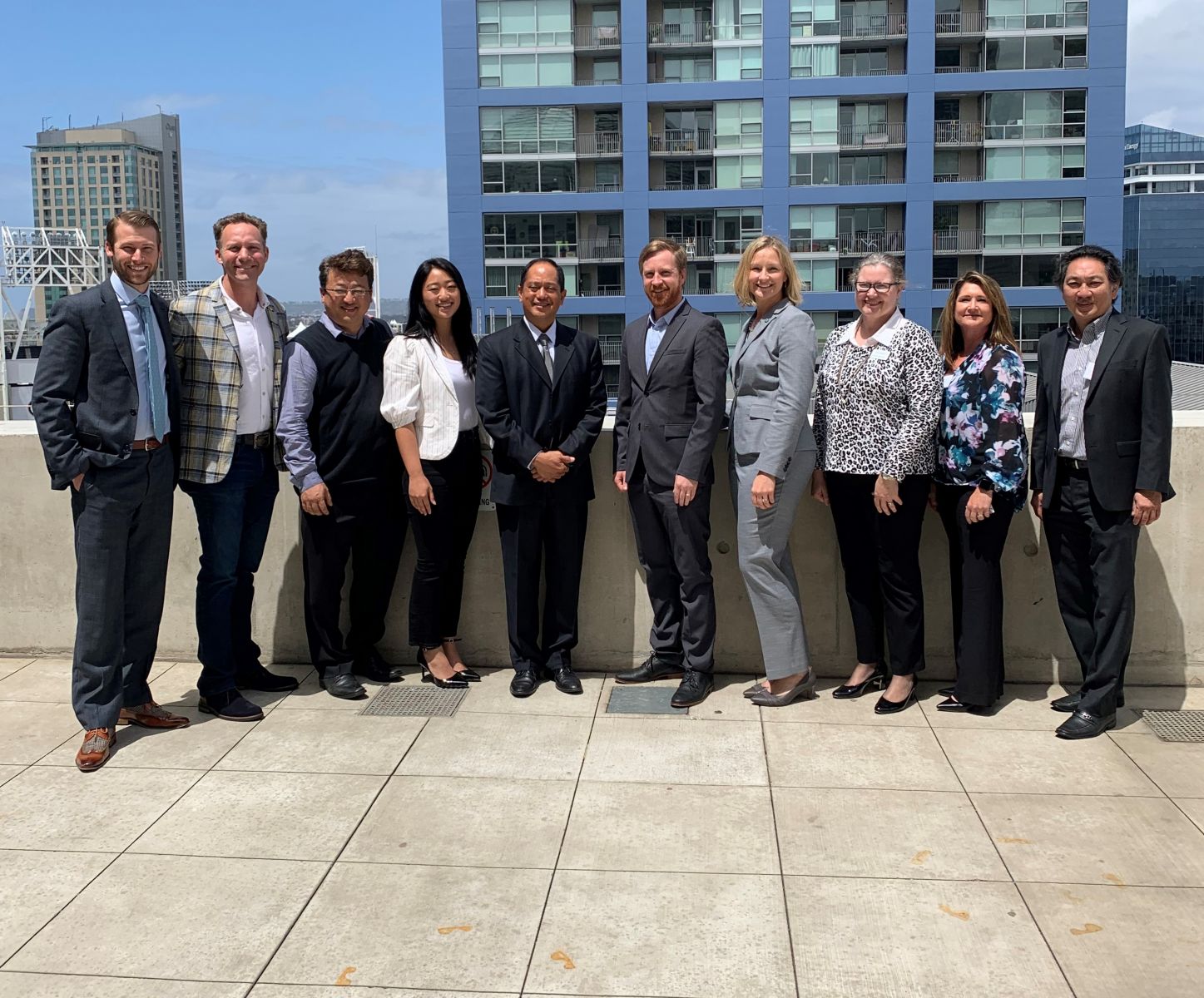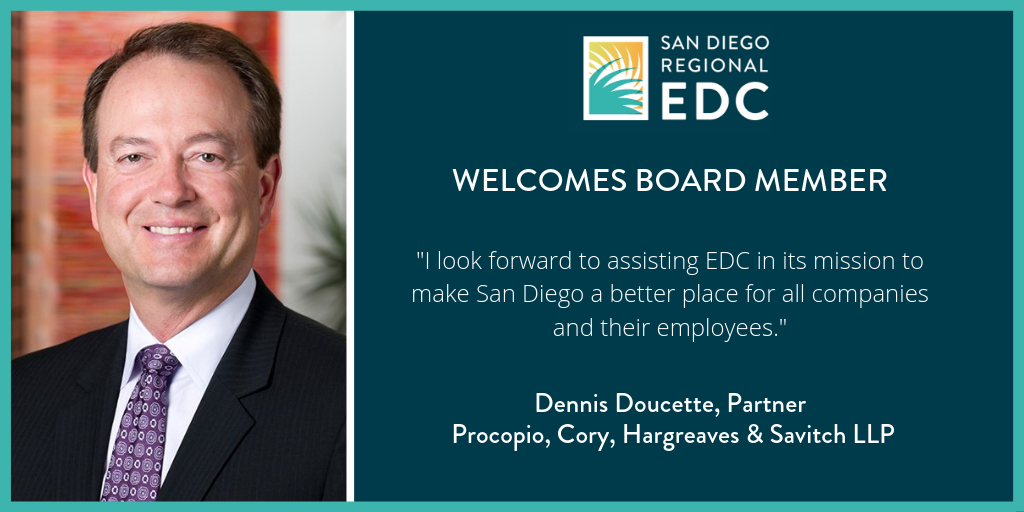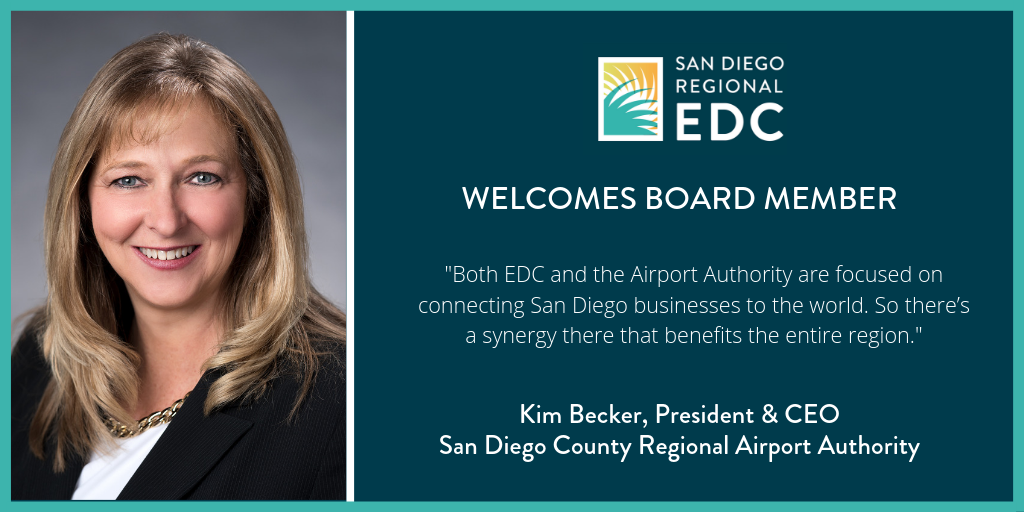
Meet Kim Becker, President and CEO of the San Diego County Regional Airport Authority. Read the Q&A below to learn about Kim and her role in exposing more people to the San Diego experience.
What is your “day job”?
I’m President/CEO of the San Diego County Regional Airport Authority, which operates San Diego International Airport. We employ about 9,400 people, who serve 24 million passengers per year. The airport provides the first and last impressions our passengers have of San Diego, so it’s our job to make it count, make it memorable, and create good feelings, nonstop. I’m talking about an on-time arrival. A friendly San Diego smile. Intuitive wayfinding and helpful workers at every turn. Providing an authentic San Diego experience that is professional yet laid-back, efficient yet unhurried; and most of all, open and easy-going.
Of all the boards in San Diego, why EDC?
Both EDC and the Airport Authority are focused on connecting San Diego businesses to the world. So there’s a synergy there that benefits the entire region.
Favorite quote?
“If you want to go fast, go alone. If you want to go far, go together.” – Anonymous
What has been your life-changing moment? Something that changed the trajectory of your life for the better:
When I was younger, a former boss pushed a large responsibility on me that I felt I wasn’t ready for, nor did I feel that I “lived in that world.” My response was “Who, me?” and the boss said “Yes, you!” I kept pushing back, all the while doubting my own ability, until my boss finally told me to “Just do it!” And I learned that when I was finally out of excuses, and I started to actually ponder the problem, I was able to rise to the challenge.
Marissa Mayer once said, “I always did something I was a little not ready to do. I think that’s how you grow. When there’s that moment of ‘Wow, I’m not really sure I can do this,’ and you push through those moments, that’s when you have a breakthrough.”
That’s how I live my life today.
What part of EDC interests you most?
I really enjoy the San Diego: Life. Changing. campaign.
